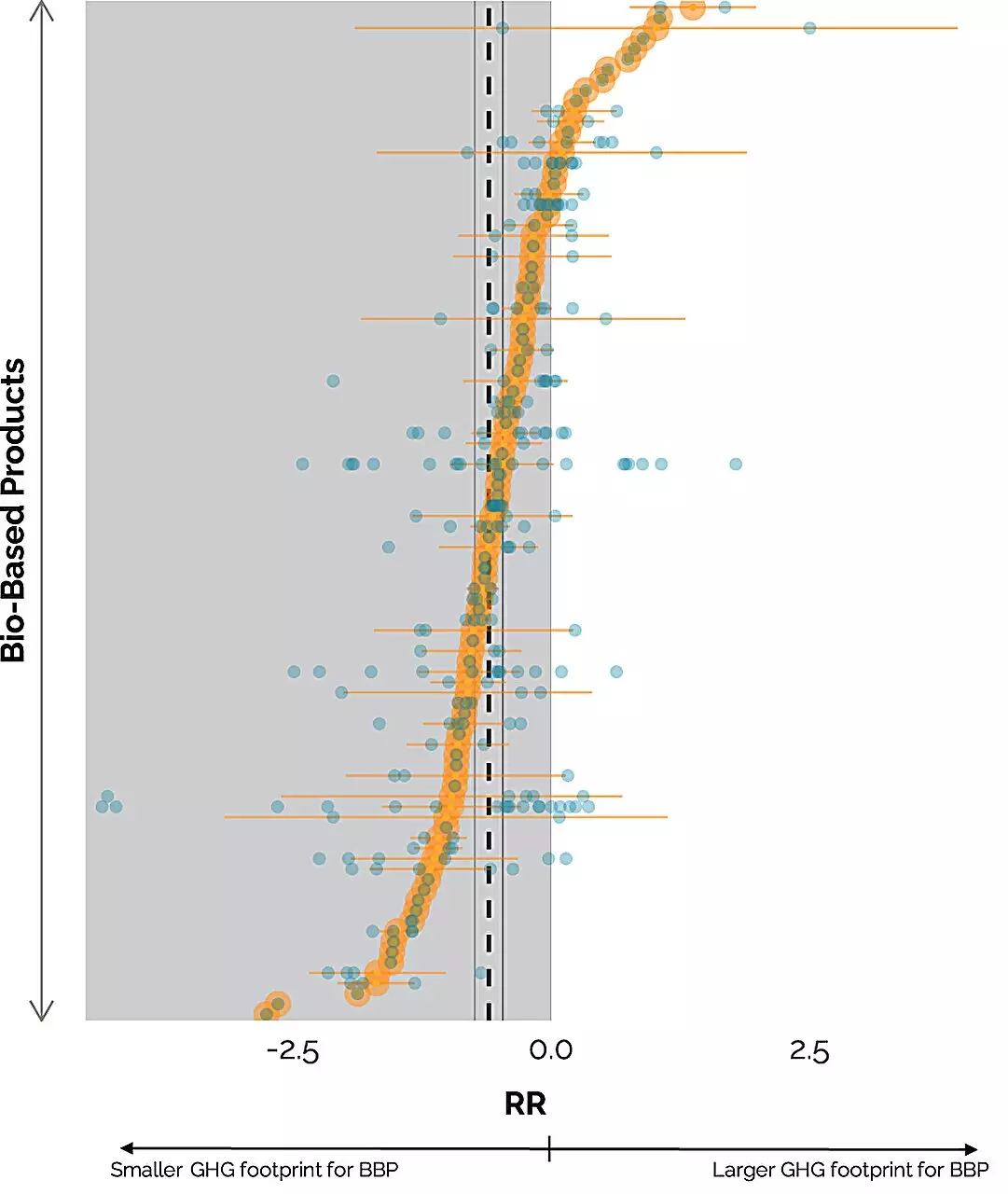Biomaterials, derived from plants, have gained significant attention as potential replacements for fossil fuel-based materials due to their perceived lower environmental impact. However, a recent study conducted by Radboud University challenges this assumption and underscores the need for further analysis in achieving climate neutrality.
According to research published in Nature Communications, bio-based products emit, on average, 45% less greenhouse gas emissions than their fossil counterparts. The study, which analyzed data from 98 biomaterials reported in 130 international studies, provides valuable insights into the potential of biomaterials as a climate-friendly alternative. Lead researcher, Emma Zuiderveen, emphasized that this is the first large-scale analysis of biomaterials in development.
While the overall reduction in CO2 emissions is promising, the study highlights significant variations in the environmental impact of individual biomaterials. Some biomaterials even emit more CO2 than the fossil materials they intend to replace. This discrepancy calls for more concerted efforts in achieving complete climate neutrality across the entire production chain.
Another crucial consideration is that the production of biomaterials may lead to unintended environmental consequences. For example, the use of fertilizers in the production of biomass used for biomaterials can have negative impacts on ecosystems. It is essential to strike a balance between reducing CO2 emissions and avoiding the shifting of environmental impacts to other areas.
The findings of this study underscore the need for continued research and development of biomaterials to minimize their negative environmental impact. While they offer potential benefits in terms of reduced CO2 emissions, a more comprehensive assessment of biomaterials is necessary to ensure their overall sustainability.
To achieve climate neutrality, stakeholders involved in biomaterials production should prioritize the adoption of cleaner and more sustainable practices. This involves evaluating the entire life cycle of biomaterials, including raw material extraction, production processes, and waste processing. Only through a holistic approach can the full potential of biomaterials be realized without compromising environmental sustainability.
Governments and industries globally play a pivotal role in driving the development and adoption of climate-friendly biomaterials. Regulatory frameworks and incentives should be established to promote sustainable practices and discourage the use of biomaterials with higher environmental impacts. Collaboration between researchers, policymakers, and businesses is crucial in ensuring the successful transition towards climate-neutral biomaterials.
The research conducted by Radboud University sheds light on the environmental impact of biomaterials and emphasizes the need for further exploration and action. While biomaterials offer a potential reduction in CO2 emissions, their variations in environmental impact and unintended consequences must be addressed. By striving for climate neutrality across the entire production chain and fostering sustainable practices, the potential of biomaterials can be harnessed to mitigate climate change effectively.



Leave a Reply